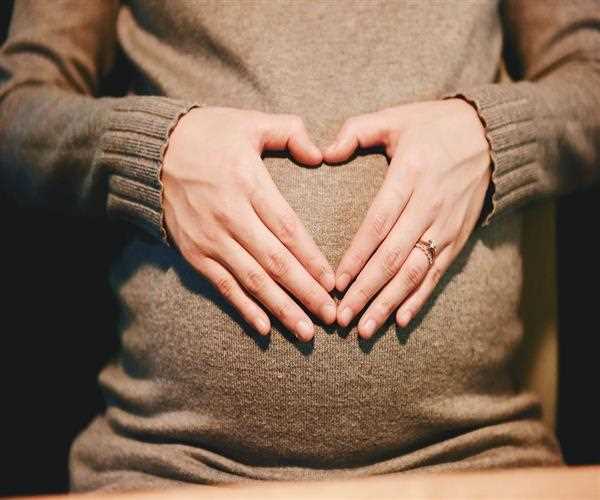Search here

06-Apr-2022
Early Pregnancy Symptoms
Playing text to speech
Do all women experience early pregnancy symptoms?
Every woman is unique. Her pregnancies were also different. Not every woman has the same symptoms from pregnancy to pregnancy or even from one pregnancy to another.
You may not realize you are pregnant because the early symptoms of pregnancy are similar to those you had some time before and during *************.
The following is a list of the most common early pregnancy symptoms. You should be aware that these symptoms can be caused by several factors other than pregnancy. So, just because you look at some of these symptoms, does not mean you are pregnant. A pregnancy test is the only way to know for sure.
Numbness and scarring
After fertilization, the fertilized egg attaches to the wall of the uterus. It can lead to dropsy and in some cases numbness, which are early indicators of pregnancy.
This is called implantation bleeding. This happens six to twelve days after the egg is fertilized.
Because pain and bleeding indicate menstrual cramps, some women mistake them for early menopause. On the other hand, bleeding and cramps are less common.
A woman may notice a white milky discharge from her vaginal area along with bleeding. This is because the walls of the vagina harden immediately after pregnancy. Discharge is caused by the growth of cells in the vaginal canal.
This discharge that occurs anytime during pregnancy is usually harmless and does not require treatment. However, if the discharge smells foul or feels inflamed and itchy, consult your doctor to find out if you have a yeast or bacterial infection.
****** Changes
Another early indicator of pregnancy is ****** change. Hormone levels in a woman's body change rapidly after pregnancy. Their ******* changes may result in swelling, pain, or tingling after one or two weeks. They may feel thick, plump, or sensitive to touch. ****** (Surrounding area ********) can also be dark.
****** Changes can be due to a variety of reasons. However, if changes are an early sign of pregnancy, keep in mind that it can take several weeks to adjust to the new location.
Fatigue
It is common to feel tired in the early stages of pregnancy.
One week after conception, a woman is particularly tired.
Why? It is associated with high levels of the hormone commonly known as progesterone, but other factors such as low blood sugar, low blood pressure, and increased blood production also play a role.
If your fatigue is due to pregnancy, you should get plenty of rest. This can be reduced by eating a diet high in protein and iron.
Nausea (morning sickness)
Morning sickness is a common symptom of pregnancy. However, it is not available to all pregnant women.
Although the exact source of morning sickness is not known, pregnancy hormones are believed to play a role. Nausea is a common symptom during pregnancy.
When a woman is pregnant, she may or may not want a particular food. Hormonal changes also play a role. Its effect is so powerful that just thinking about a favorite dish can change a pregnant woman’s stomach.
Illness, cravings, and food intolerance can last until pregnancy. Fortunately, by the 13th or 14th week of pregnancy, most women have reduced symptoms.
During this time, take a balanced diet to ensure that you and your developing baby get the nutrients you need. You can seek guidance from your doctor on this.
Time skipped
Missing ************* is the most visible early symptom of pregnancy and the reason many women take a pregnancy test. However, pregnancy does not cause the disappearance or delay of all menstruation.
Women may also have some bleeding during pregnancy. If you are pregnant, talk to your doctor about what to expect if bleeding occurs. When is bleeding normal and when is it an emergency symptom, for example?
Apart from pregnancy, there are other reasons to miss periods. Maybe you have gained or lost a lot of weight. Other factors to consider are hormonal imbalances, fatigue, and stress. Some women skip their periods when they stop taking birth control pills. However, if your ************ is late and you may be pregnant
Other signs and symptoms of pregnancy
The hormonal balance in your body changes during pregnancy. Other symptoms that may arise are:
Frequent urination. It begins in most women in the sixth or eighth week of pregnancy. It can be caused by a urinary tract infection, diabetes, or the use of diuretics, most of which are associated with a hormonal imbalance if you are pregnant.
Constipation. High doses of the hormone progesterone can cause constipation during pregnancy. Progesterone slows the passage of food through your intestines. To combat this problem, drink plenty of water, exercise, and eat a diet high in fiber.
Mood swings are a common occurrence. These happen very often, especially in the first trimester. Hormonal changes are also associated with these symptoms.
Backache and headache. Most pregnant women have moderate headaches regularly, while others experience back pain.
Symptoms include dizziness and lightheadedness. These effects may be associated with dilated blood vessels, decreased blood pressure, and lower blood sugar levels.
A pregnant woman may have only one or two of these symptoms. If any of these symptoms turn out to be problematic, discuss them with your doctor so that you can devise strategies to alleviate them.

Comments
Solutions
Copyright 2010 - 2024 MindStick Software Pvt. Ltd. All Rights Reserved Privacy Policy | Terms & Conditions
